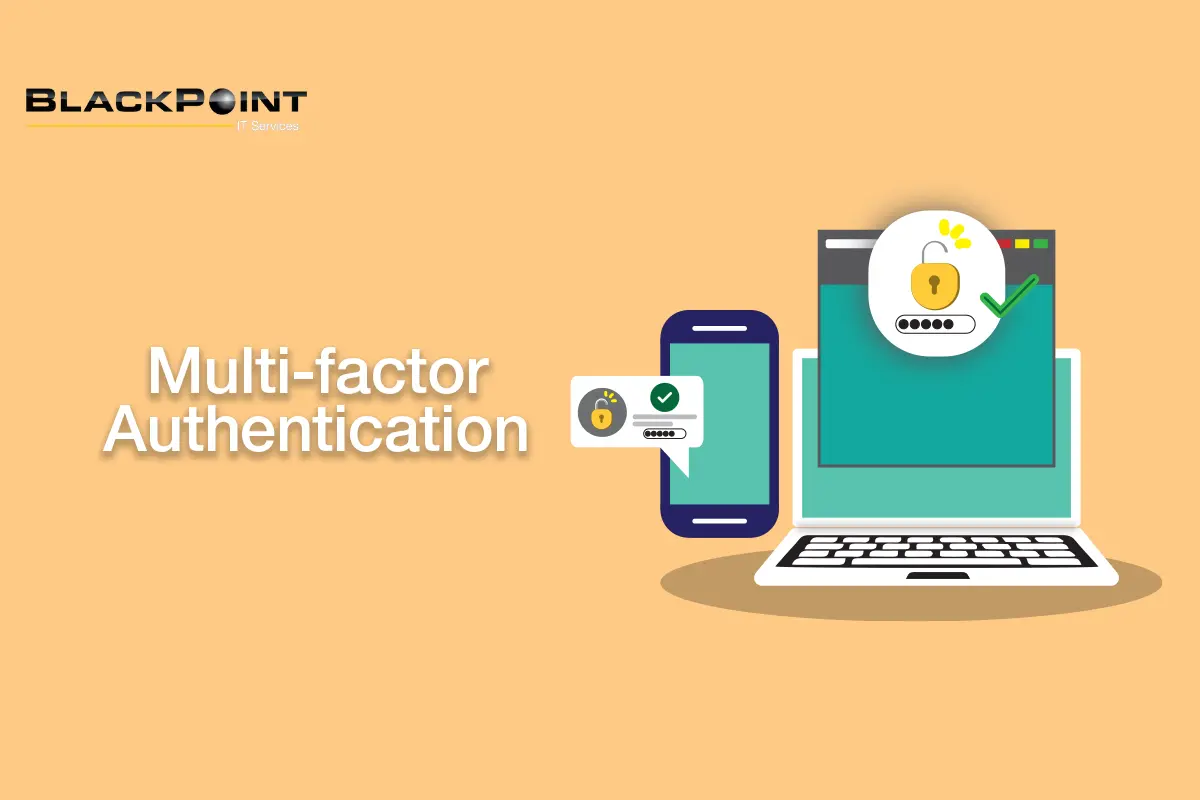
Multi-factor authentication (MFA) is an advanced security solution incorporating multiple authentication factors to secure your access and credentials, going beyond the traditional username and password setup. Before granting access to your system, applications, or account, additional authentication factors such as security tokens, fingerprints, retina scans, and facial recognition are used to verify your identity.
1. Knowledge Factors: These are things you know, such as your password or the answer to a secret question. While they are the most common way to authenticate, they are also the weakest, as passwords can be easily stolen or guessed, making them vulnerable to phishing attacks.
2. Possession Factors: These are physical elements that you have, like your mobile device or a security key. An example is receiving a one-time passcode (OTP) via text message or generating time-sensitive codes through an authenticator app. Even if a password is compromised, an additional physical element is required for access. However, if these physical elements are lost or stolen, emphasizing the importance of reporting, and deactivating them promptly.
3. Inherence Factors: These are things you are, such as your unique physical or behavioral characteristics. Examples of these are fingerprints, retina scans, or facial recognition. This authentication method is considered the most secure, as it is highly personalized and difficult to replicate. However, some concerns are associated with biometric authentication, such as the risk of biometric data being compromised and the need for specialized hardware.
MFA adds an extra layer of protection by requiring you to provide two or more authentication factors mentioned above during the login process. The more layers you add, the harder it becomes for unauthorized individuals to gain access.
An example scenario using MFA is entering a password and then using a generated code from a mobile app. Another common scenario is using a fingerprint scan followed by a one-time passcode sent to your mobile device. The combination of factors can be customized based on the specific security requirements of a system or application.

1. Reduced Risk of Unauthorized Access
Adding more layers of security to the access process through MFA helps prevent unauthorized access and protect against cyber attacks, especially in cases where credentials are stolen or compromised. Attackers are less likely to succeed in infiltrating systems without the additional authentication factors.
2. Protection Against Phishing
One common tactic cybercriminals use to obtain critical information is phishing attacks. Fake emails or websites are often used to deceive users into giving away their login credentials, leading to compromised accounts and stolen data. By using MFA, the attacker would need additional authentication factors in addition to the stolen password to gain access to the account, thereby minimizing the likelihood of unauthorized access to critical information.
3. Data Breach Mitigation
The additional authentication methods needed for accessing sensitive information limit the impact of data breaches. With MFA, stolen passwords alone become insufficient, with its real-time identity verification and subsequent verification steps becoming a barrier to unauthorized access.
4. Compliance with Regulations
Implementing MFA can assist you in meeting industry-specific data security regulations and compliance requirements. These, in return, demonstrate your commitment to data security and help build trust with customers and partners.
5. Adaptability and Flexibility
MFA solutions allow you to choose authentication methods that best suit your operational needs and security requirements. Some authentication methods require additional purchases of hardware access, such as iris scans or fingerprint scanners, while others require a purchase of software access. There are also free authentication apps that you can utilize, but the best choice truly depends on your needs and budget.
6. Cost-Effective Security Measures
Cybersecurity experts highly recommend using MFA not just for improved security protection but also as a cost-effective solution to mitigate potential losses from security incidents. Despite the additional cost, it is a wise investment as it outweighs the financial and reputational damage a breach can cause. It is better to be safe than face the repercussions after.
7. Trust and Customer Confidence
Businesses deal with multiple transactions with their clients daily, during which clients share their personal and financial information. The need for robust security measures is heightened with the daily rampant cyber attacks. Deploying advanced security solutions such as MFA sends a clear message that you take this responsibility seriously and demonstrates your commitment to cybersecurity, ensuring the confidentiality and integrity of customer information.
8. Secure Remote Access
With the prevalence of remote work, its primary challenge is the diversity of locations and networks in which your employees access company systems. The traditional office setting has controlled access points, while remote work introduces many potential entry points for cyber threats. MFAs’ multi-layered approach minimizes the risk of unauthorized access even if credentials are compromised. It enhances your business’s overall security posture by strengthening the authentication process before granting access to your systems.
A wide range of cybersecurity solutions, including Multi-Factor Authentication implementation, to secure your business. Our team of cybersecurity experts utilizes MFA to safeguard your sensitive data and accounts against unauthorized access, hacking attempts, and other cyber threats. Secure your business with MFA—contact us today for a free consultation and discover how MFA can benefit your business.